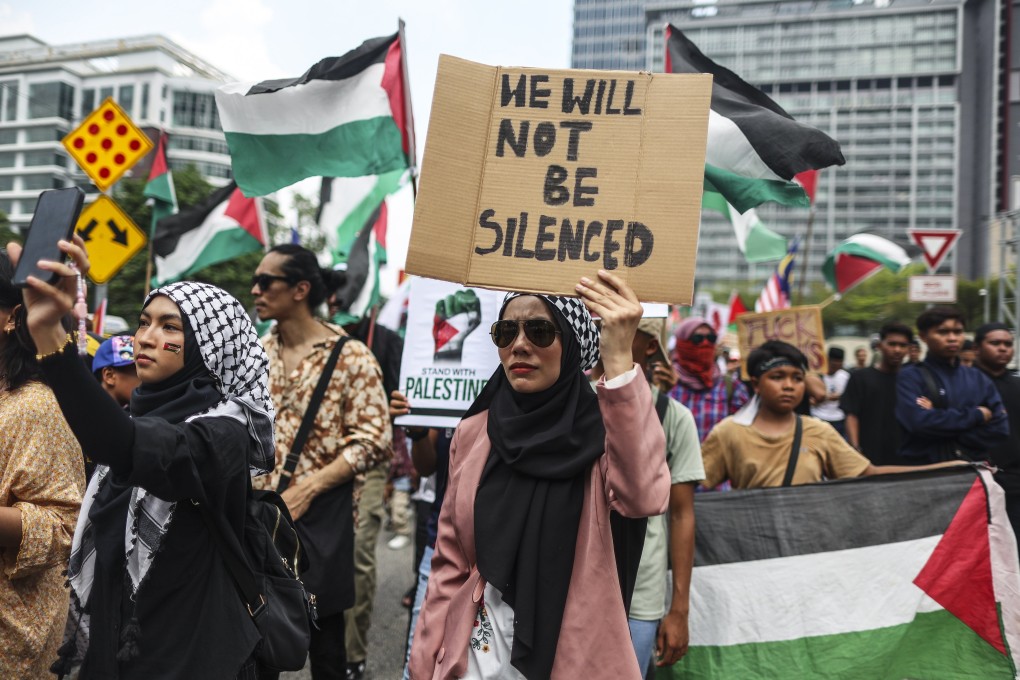Advertisement
Asian Angle | For Southeast Asians, Israel-Gaza war is more worrying than even South China Sea row – as extremism fears grow
- The Gaza war resonated deeply among Southeast Asian respondents in a recent survey, given the significant proportion of Muslims in the region
- The State of Southeast 2024 Survey also highlighted concerns about the global rules-based order and a potential rise in extremist activities
Reading Time:4 minutes
Why you can trust SCMP

The Israel-Gaza war has become the foremost geopolitical concern in Southeast Asia, surpassing even the South China Sea dispute, according to the State of Southeast 2024 Survey.
Advertisement
Despite its geographical distance from Southeast Asia, the Gaza conflict resonated deeply among respondents in the region.
This concern is understandable given that more than 40 per cent of Southeast Asia’s population are Muslims, with the majority living in Indonesia, Malaysia and Brunei. Additionally, countries like Singapore, where around 15 per cent of its population are Muslims, have highlighted this conflict as the top concern for their governments.
The South China Sea dispute was the second most pressing concern among Southeast Asian respondents, followed by the Russia-Ukraine war and global scam operations, both in third place. A total of 1,994 people from across the region took part in the survey, which was conducted by the ISEAS-Yusof Ishak Institute’s Asean Studies Centre.
The Israel-Gaza war has not only significantly influenced the domestic politics of Muslim-majority countries in Southeast Asia, but also sparked divisive views in the region. In the initial stages of the conflict following the Hamas attack on October 7, Southeast Asian countries displayed a range of official positions.
Advertisement
Countries like Singapore and the Philippines quickly condemned Hamas’ attacks on Israel, whereas others like Indonesia and Malaysia expressed solidarity with the Palestinians. This divergence was evidenced in the statement by Asean foreign ministers, which referenced the varied national stances on the conflict.

Advertisement
